The 6th Annual Meeting of E-commerce and Digital Innovation with the theme of Generative Artificial Intelligence and Management Innovation was held at Wuhan University on August 27th.
VIPs attended the meeting were as followings:
Longqiang Chu, CPC Deputy Secretary of Wuhan University,
Lihua Huang, Director of Information System and Digital Innovation Group of the Society of Management Science and Engineering of China, Professor at the School of Management of Fudan University,
Yezheng Liu, Director of E-commerce and Cyberspace Management Committee of Chinese Academy of Management, Professor at the School of Management of Hefei University of Technology.
Jiang Wu, Professor and Associate Dean of the School of Information Management, presided over the opening ceremony.

Longqiang Chu expressed warm welcome and heartfelt thanks to the participants. He emphasized the important role of generative artificial intelligence in the development of digital economy and the construction of digital China, combed the development and achievements of Wuhan University's e-commerce and digital innovation, and said that Wuhan University is willing to create a bright future of e-commerce and digital innovation with other universities.
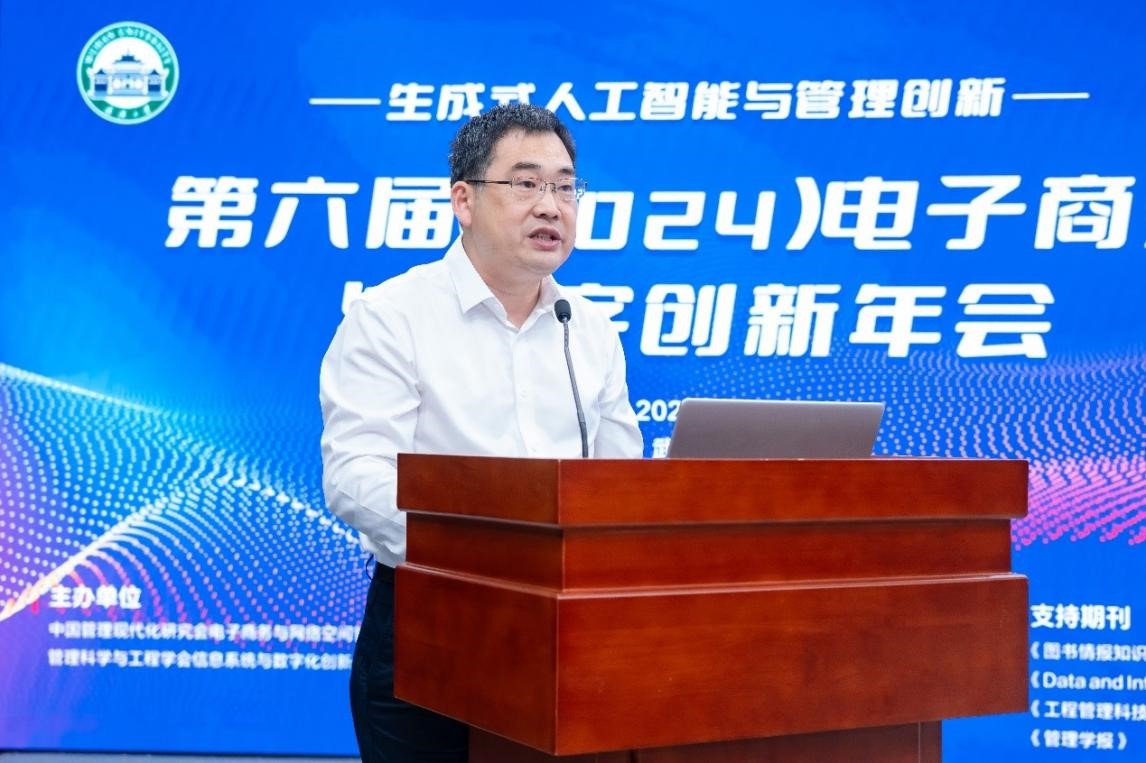
Lihua Huang reviewed the development of the annual meeting of e-commerce and digital innovation, emphasized the subversive impact of generative artificial intelligence on the production mode, operation mode and management mode of enterprises, and called on the academic community and industry to actively embrace the development trend of new technologies and promote the deepening of academic research and management practice.

Yezheng Liu reviewed the development of the E-commerce and Cyberspace Management Committee of Chinese Academy of Management, and said that the annual meeting of E-commerce and Digital Innovation will continue to meet new challenges with an open and innovative attitude and contribute to the growth of professional fields.
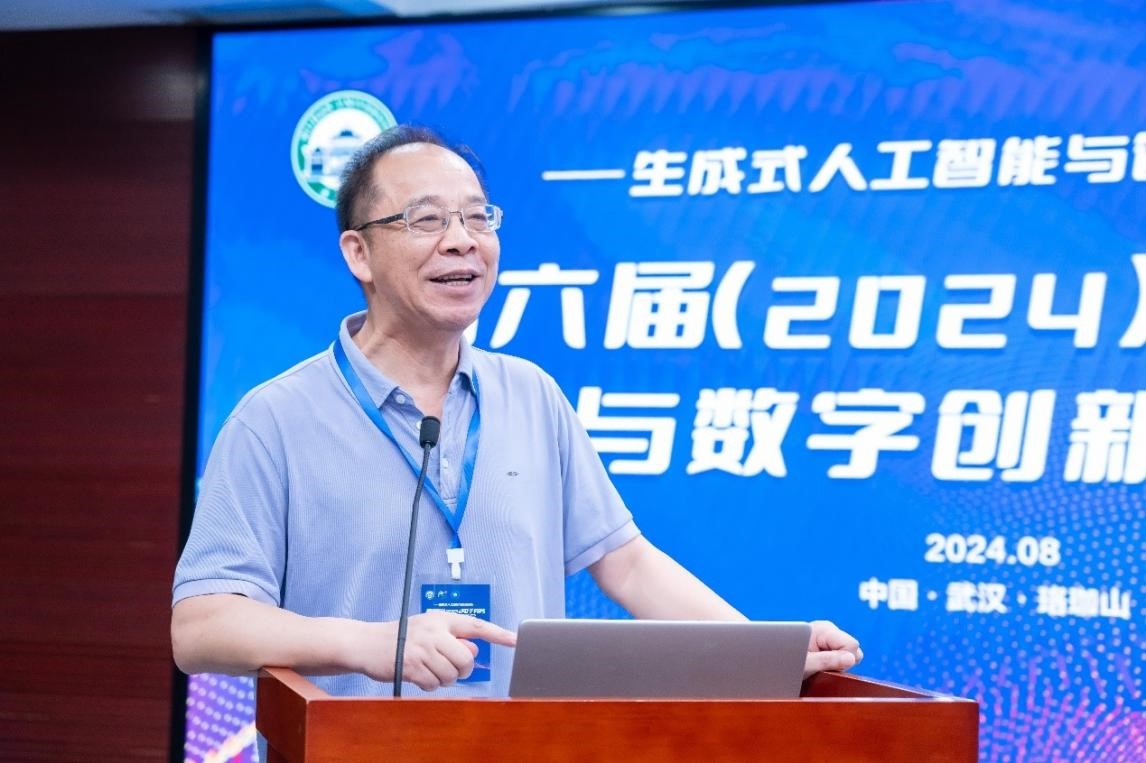
In the keynote session, Lihua Huang deeply discussed the opportunities and challenges faced by the information system field in the era of digital innovation, and pointed out that data elementization has become an important prerequisite to promote the innovation of new economy, new business models, and new model, and provided the direction for the future professional construction and discipline development from three aspects: complex social technology system, data elementization and "digital X".
Xiangpei Hu, Professor at the School of Economics and Management, Dalian University of Technology, analyzed the problems of time-consuming, labor-consuming and bias in the coding process of traditional grounding theory, and put forward a method of integrating generative artificial intelligence with grounding theory, which was proved to be reasonable via a power grid fault case.

Wei Lu, Professor at the School of Information Management, expounded the impact and influence of the development of big model and artificial intelligence technology on the discipline of information resource management, discussed the methods and paths of technological innovation and evaluation driven by big model, and showed how artificial intelligence can empower the whole chain of technological innovation and evaluation with several specific research examples.
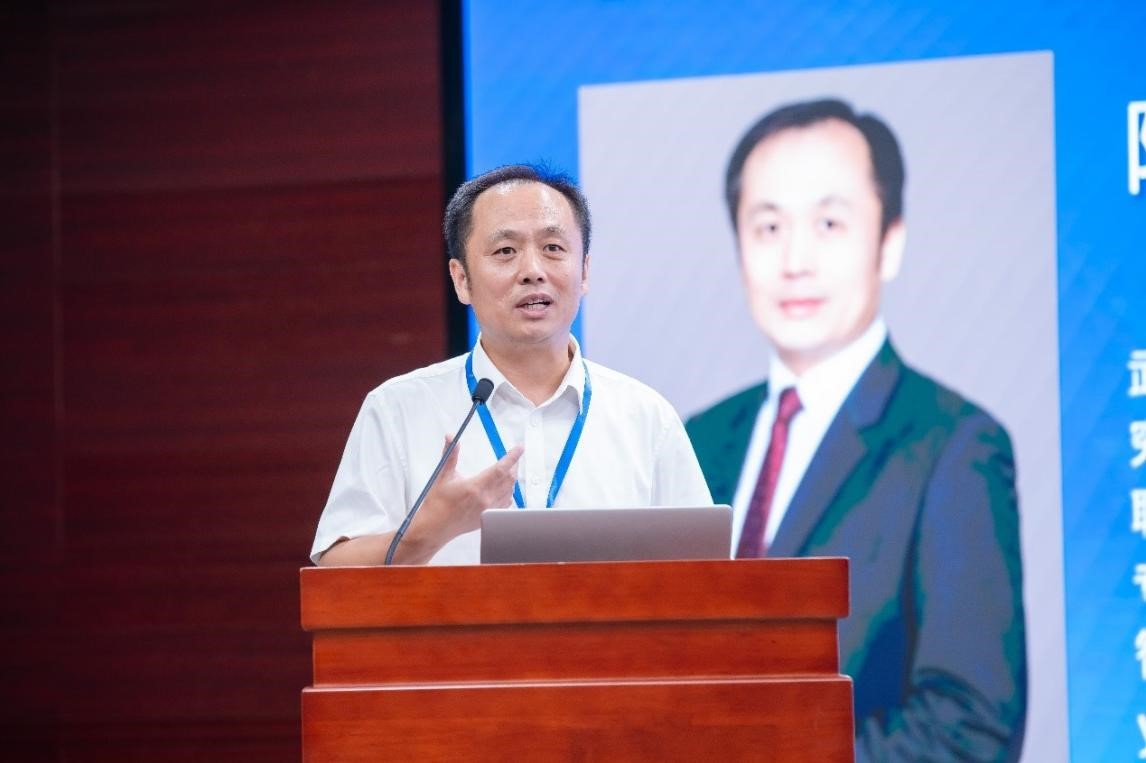
Hongyan Liu, Professor at the School of Economics and Management, Tsinghua University, pointed out that there are social biases, behavioral biases and cue handling biases in large-scale language models. She put forward how to solve the problem of less data in cold start scene and the problem that the large language model is sensitive to the position of prompt words in talent recommendation scene via two research examples.

Junjie Wu, Professor at the School of Economics and Management, Beihang University, showed the "zero-sample learning" graph model constructed by the research group by combining graph neural network with large language model, and verified the superiority of this model compared with the traditional graph neural network model and large language model via experiments.
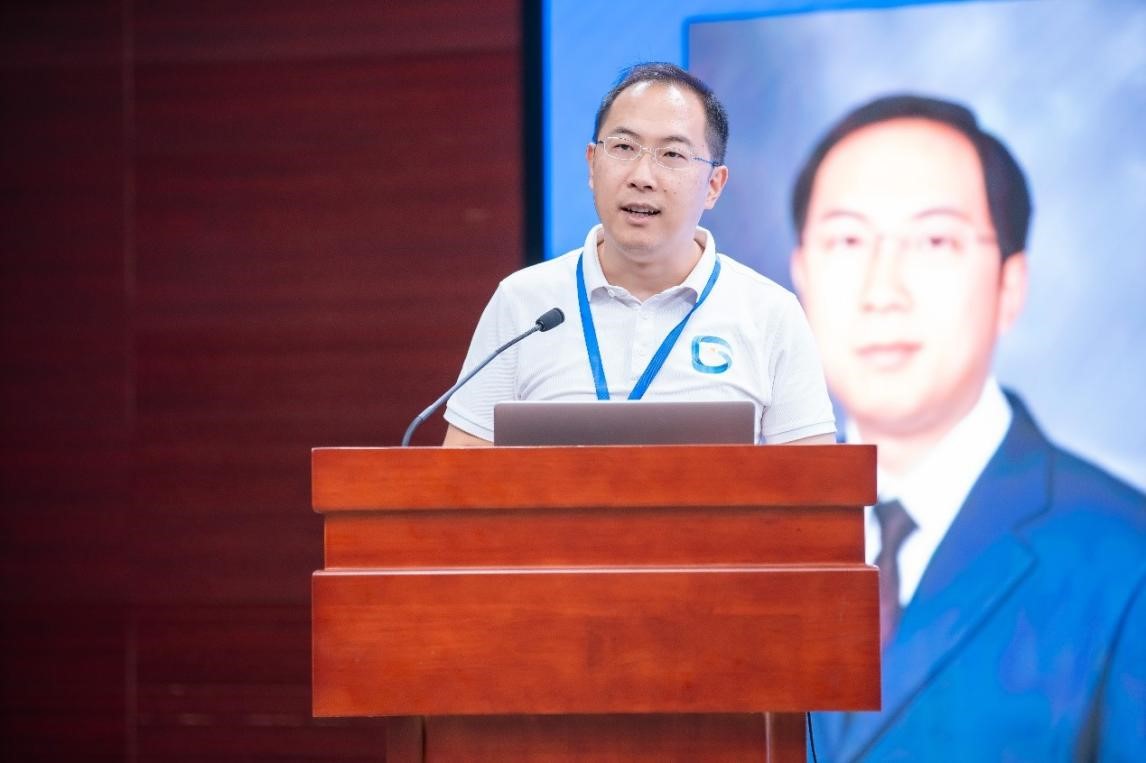
VIPs presided over the keynote speech were as followings:
Yaobin Lu, Professor at the School of Management, Huazhong University of Science and Technology,
Ying Hua, Professor at the School of Information, University of International Business and Economics,
Xiaolong Zheng, Researcher at the Institute of Automation, Chinese Academy of Sciences,
Mingzheng Wang, Professor at the School of Management, Zhejiang University,
Yuanchun Jiang, Professor at the School of Management, Hefei University of Technology.
In the sub-venues, four sub-forums and a workshop were held at the same time. The four sub-forums were Generative Artificial Intelligence and E-commerce Innovation, Digital Transformation and Innovation Management, E-commerce and Logistics Management, and Digital Village and Digital Commerce Revitalizes Agriculture.
VIPs presided over the sub-forums were as followings:
Yuanchun Jiang, Professor at the School of Management of Hefei University of Technology,
Jianshan Sun, Professor at the School of Management of Hefei University of Technology,
Youwei Wang, Professor at the School of Management of Fudan University,
Xiangpei Hu, Professor at the School of Economics and Management of Dalian University of Technology,
Chaocheng He, Associate Professor at the School of Information Management, Wuhan University.
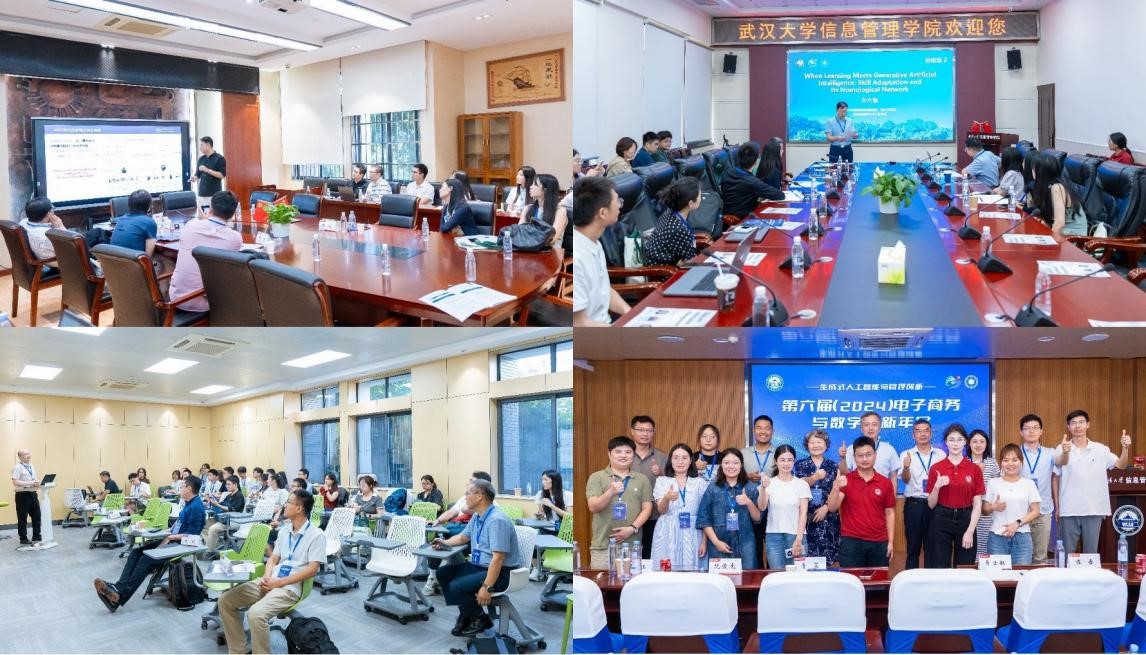

The Annual Meeting of E-commerce and Digital Innovation is co-sponsored by the E-commerce and Cyberspace Management Committee of Chinese Academy of Management and Information System and Digital Innovation Group of the Society of Management Science and Engineering of China. The 6th Annual Meeting of E-commerce and Digital Innovation was hosted by the School of Information Management, Wuhan University, and co-organized by Hubei E-Commerce University Association. Hundreds of experts and scholars from domestic universities and scientific research institutions discussed the frontier issues such as generative artificial intelligence and e-commerce innovation, digital transformation and innovation management, e-commerce and logistics management, and digital villages and digital commerce revitalizes agriculture, which further deepened the theoretical understanding and research consensus on e-commerce and digital innovation, and provided reference for future academic research and management practice.